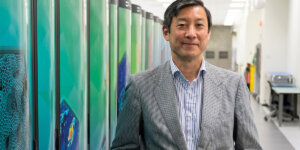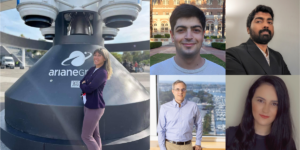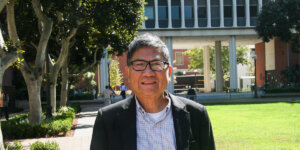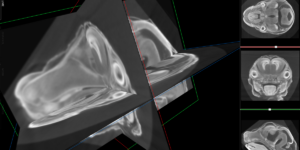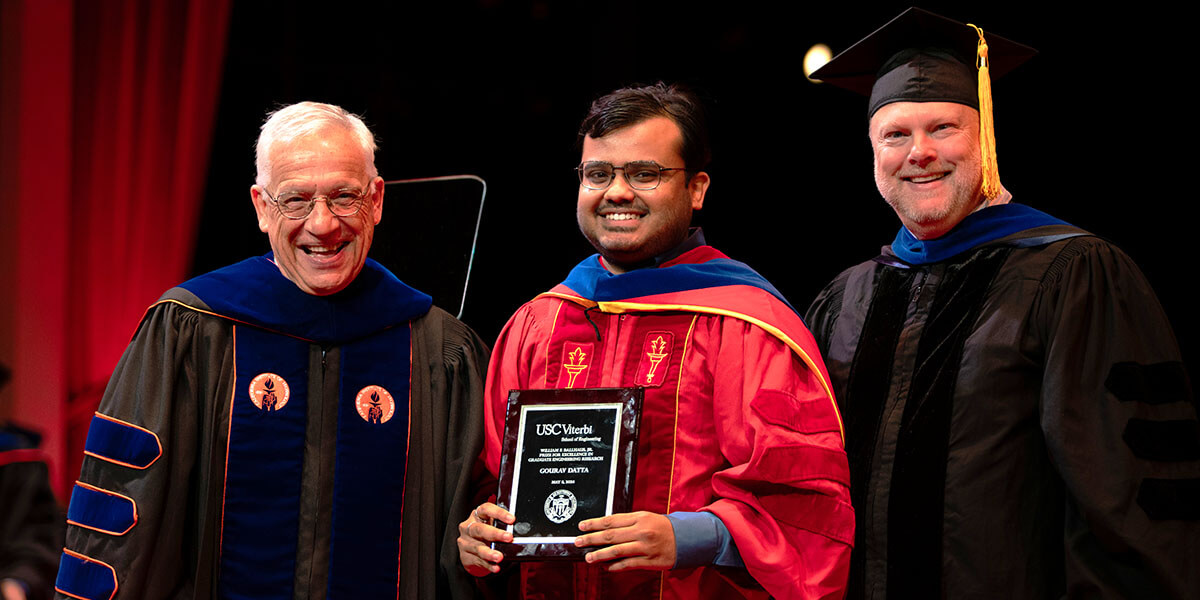
Gourav Datta, center, the winner of the 2024 William F. Ballhaus, Jr. Prize for Excellence in Graduate Engineering Research, with Dean Yannis Yortsos (left) and Erik Johnson, USC Viterbi vice dean for academic programs (right).
Ryan Bena was only in his second semester as a Ph.D. student at the USC Viterbi School of Engineering when he was forced to leave the Dynamic Robotics and Control Laboratory.
COVID-19, it seemed, cared little for continuity in doctoral research.
Bena, who had just starting achieving “groundbreaking experimental results” with the lab’s insect-size, flying robot, Bee++, suddenly had to abandon all his experiments. What’s worse, his close lab collaborator, Xiufeng Yang, graduated soon after in May 2020.
Like most of the 166 Ph.D. candidates in this year’s graduating class, Bena spent the next six months working remotely. But he used that time profitably – analyzing his experimental results and dedicating himself to writing and submitting papers, which were soon favorably received in the micro-scale robotics community.
Today, Bena was among the four finalists for USC Viterbi’s most coveted Ph.D. award: the William F. Ballhaus, Jr. Prize for Excellence in Graduate Engineering Research.
On Wednesday, May 8, at the USC Viterbi School of Engineering’s 2024 Ph.D. Hooding and Awards Ceremony, Bovard Auditorium was alive with bright colors, Elgar’s “Pomp and Circumstance” and family and well-wishers from all over the globe.
The 2024 event saw the newly minted Ph.D.s sport their new cardinal and gold hoods, a tradition that dates back to 12th century monks. This year’s graduates represent countries ranging from China, India, Lebanon, South Korea, Italy and the U.S. — united, according to Yannis Yortsos, USC Viterbi dean, in their “shared talents and diverse areas of expertise.”
Gourav Datta, ’23, ultimately took home the USC Viterbi Ph.D. dissertation award for 2024 for his work: “Towards Efficient Edge Intelligence with Neuromorphic and In-Sensor Computing: Algorithm-Hardware Co-Design.” Alongside his advisor, Professor Peter Beerel, Datta collaborated with Samsung on energy efficient “self-healing cameras” that can fill in the gaps of distorted images.
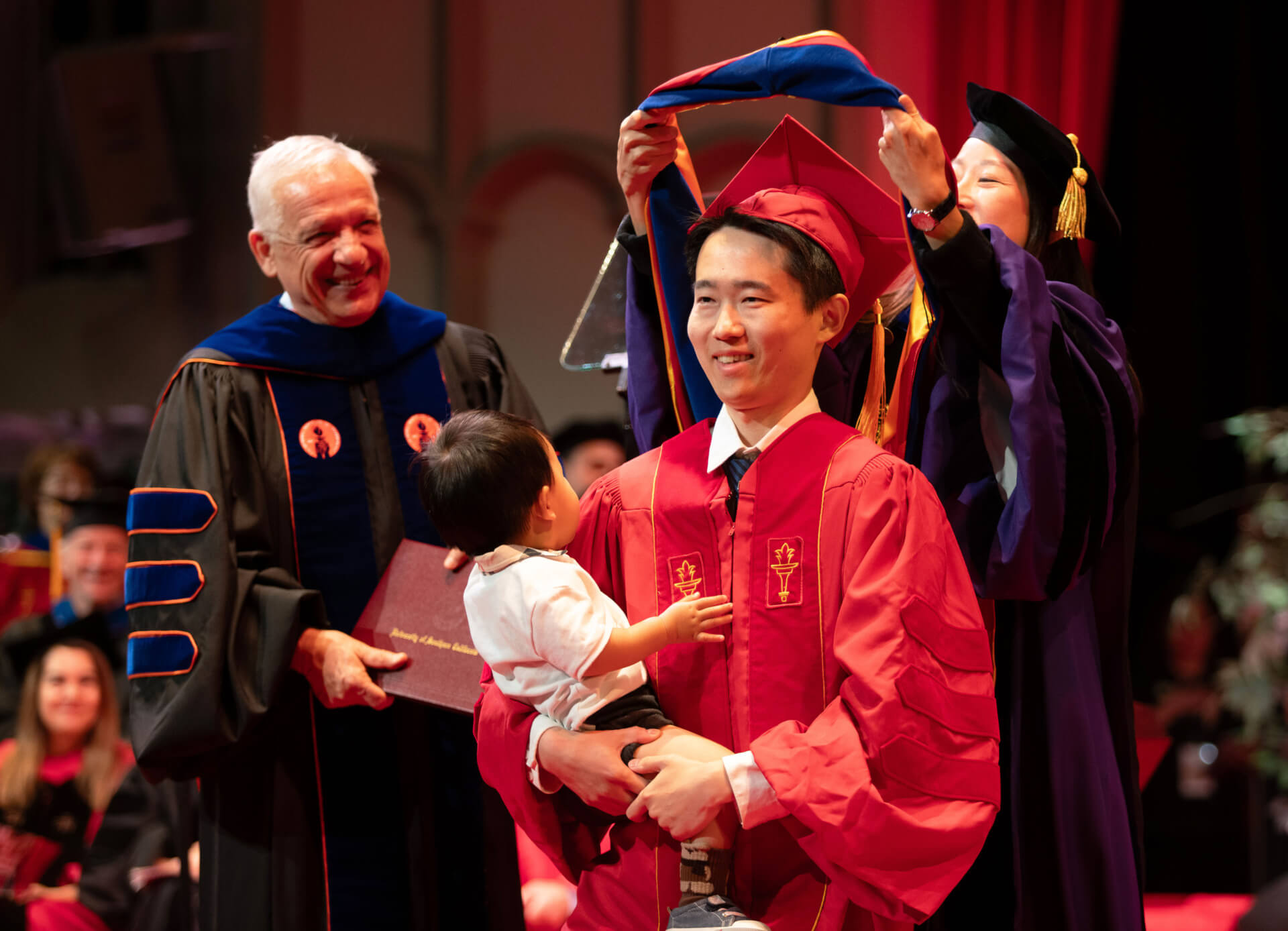
Yi Huang receives his hood from Ph.D. advisor Eun Ji Chung as Dean Yortsos looks on.
The ceremony coincided with this year’s 20th anniversary of the USC Viterbi School naming, and Dean Yannis Yortsos was quick to remind the attendees of another doctoral student — Andrew Viterbi, Ph.D. ’62 — who was also no stranger to overcoming adversity.
Viterbi, one of the school’s early Ph.D. students, had a dream of becoming a university professor. But that dream was tempered by a necessity to work full time, providing for his wife, two young kids and two sets of elderly parents. USC, he soon discovered, was the place where he could do both.
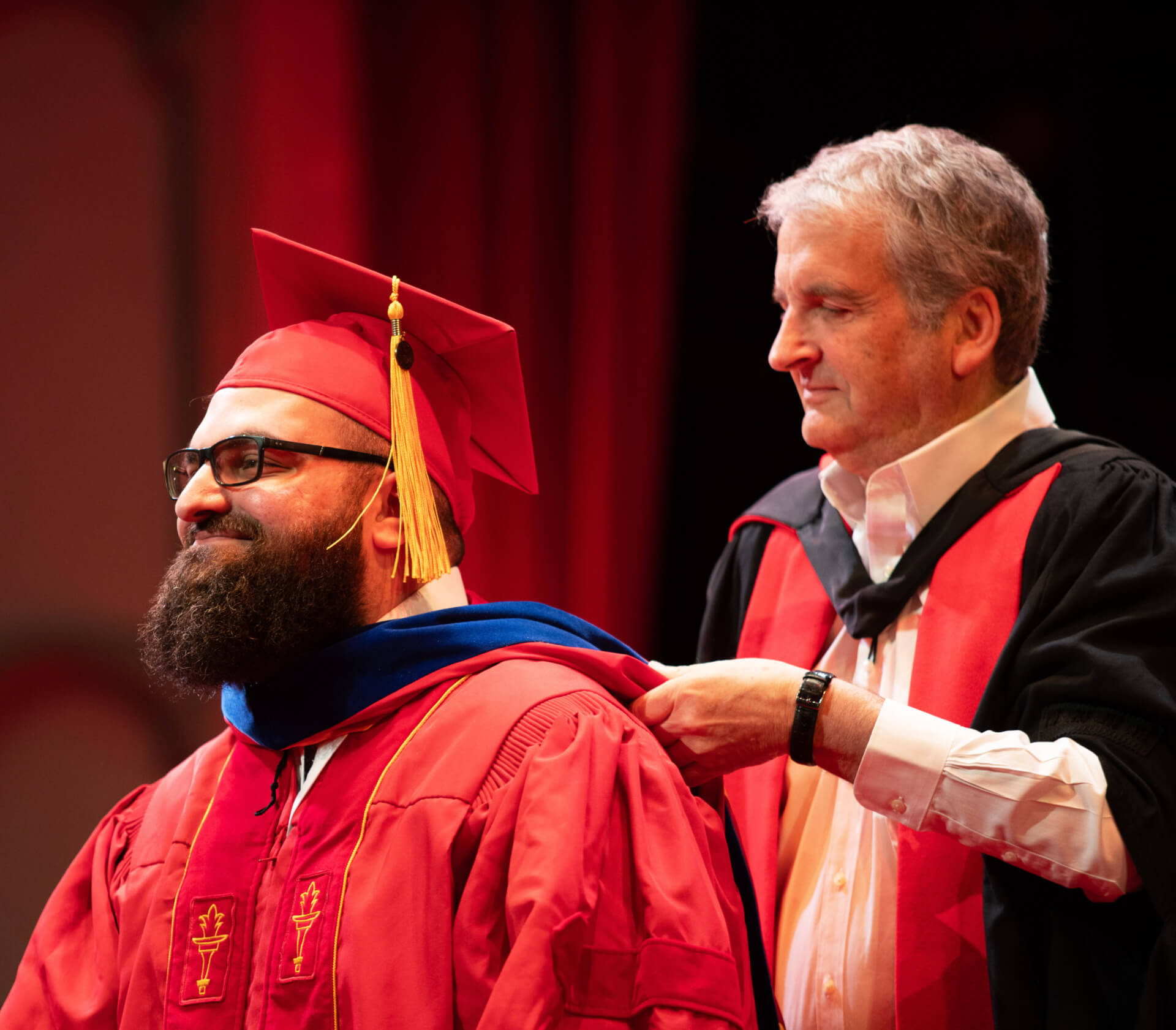
Hussein Hammoud receives his hood from Professor Tony Levi, chair of the Ming Hsieh Department of Electrical and Computer Engineering.
“Now, his Ph.D. defense was not an easy one,” said Yortsos. “It was the only time in his life he dreaded getting out of bed. When it was all done, he was certain that he’d failed…Indeed, Andrew Viterbi, according to his own autobiography, felt that his dissertation was far from his best work. It would be another four years before he felt he made a meaningful contribution to his field. But what he did, we’re still celebrating 50 years later!”
Yortsos added: “As Socrates said: “Education is the kindling of a flame, not the filling of a vessel. My hope for all of you is that your time at USC helped the kindling of a flame that will burn brightly in all your life. That flame will hopefully give warmth to other places, cities, industries, and maybe even worlds.”
Datta’s flame has now moved on to Amazon, where he serves as an applied scientist.
Rashid Alavi, Ph.D. ’23, another candidate for this year’s best Ph.D. thesis award, has been an innovator in using non-invasive methods like iPhone cameras to detect super silent heart attacks. Alavi continues his work as a James Boswell Postdoctoral Fellow at Caltech.
“When you feel chest pain,” said Alavi, “you can place your iPhone over your neck, and it can tell you if the chest pain is related to a heart attack.”
Zalan Fabian, Ph.D. ’23, the remaining Ballhaus Prize finalist, found new insights in accelerating MRI and medical imaging scans. His proposed methods could aid radiologists and other medical doctors in two ways: improving the diagnostic value of medical images and reducing the duration of MRI scans, potentially making such scans cheaper and more efficient.
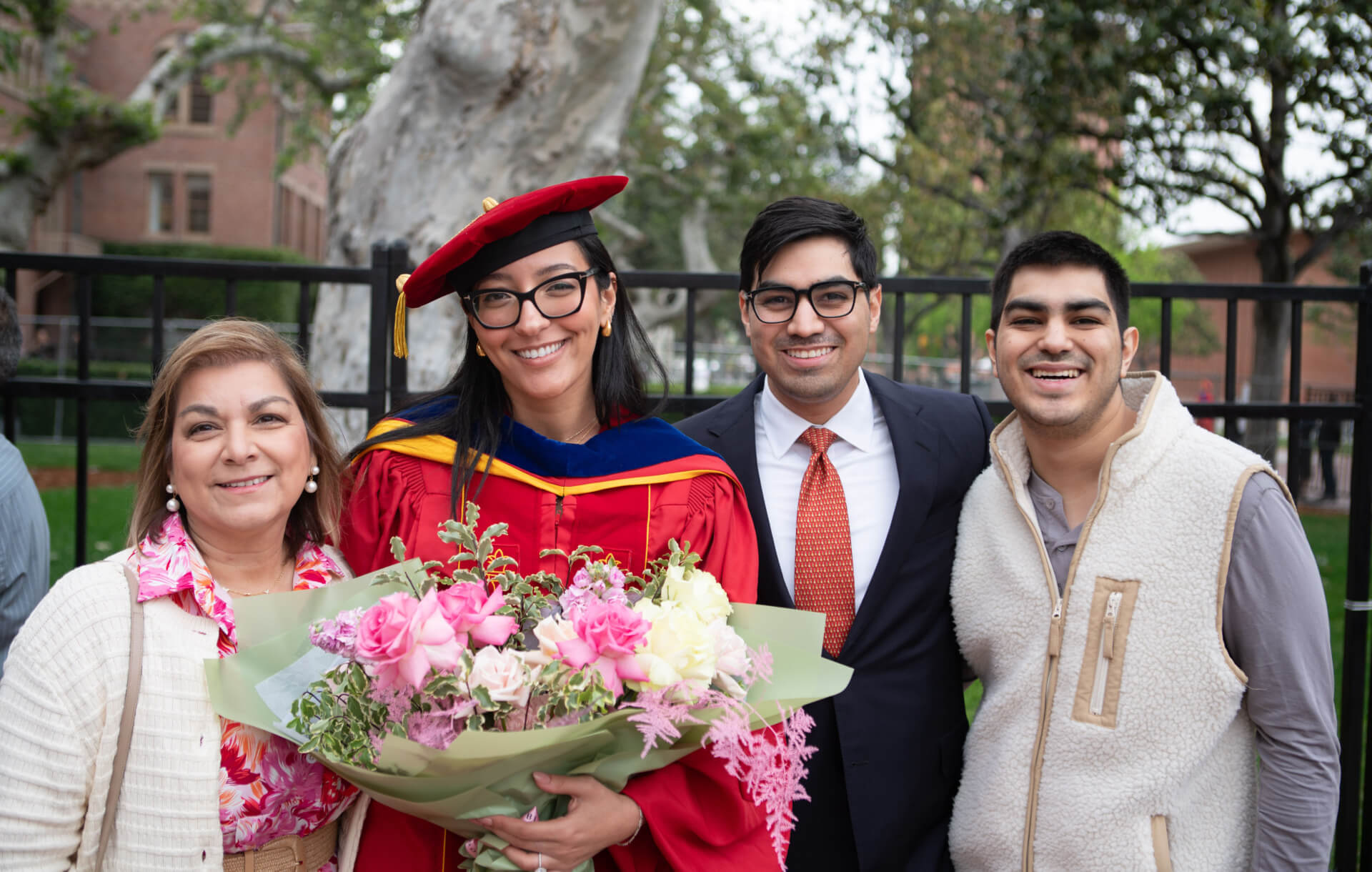
Hiba Kahouli, a new Ph.D. in aerospace and mechanical engineering, poses with family at USC Viterbi’s 2024 Ph.D. Hooding and Awards event.
Published on May 9th, 2024
Last updated on May 9th, 2024




